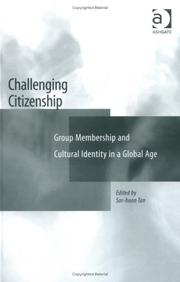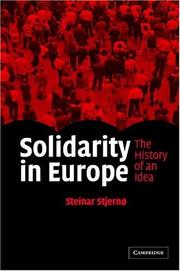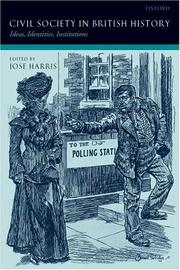| Listing 1 - 10 of 16 | << page >> |
Sort by
|
Book
ISBN: 2707144967 9782707144966 Year: 2005 Publisher: Paris: La Découverte,
Abstract | Keywords | Export | Availability | Bookmark
 Loading...
Loading...Choose an application
- Reference Manager
- EndNote
- RefWorks (Direct export to RefWorks)
[2014] Publié une première fois en 1994, retiré et actualisé en 2005 cet ouvrage reste plus actuel que jamais dans un monde dévasté par l’économisme. Il montre en effet en quoi consiste l’utilitarisme, qui en est la matrice, et il indique comment penser de manière alternative en mettant en œuvre le «paradigme du don», i.e. une pensée politique du don, à mille lieues de tout idéalisme. "S'il valait, nous dit l'auteur, la peine de rééditer le présent livre, épuisé depuis plusieurs années, c’est parce que les articles qu’il rassemble et notamment les trois textes principaux – la critique de Pierre Bourdieu, la relecture de la République de Platon et la réflexion sur le don, l’intérêt et le désintéressement (et sur Derrida…) – correspondent à des moments charnières dans la réflexion du Mauss." En tant qu’hommes et femmes modernes nous nous trouvons écartelés entre deux séries de certitudes et d’exigences parfaitement inconciliables. D’une part, notre époque nous pousse impérieusement à croire que rien n’échappe à la loi toute puissante de l’intérêt et qu’il nous faut nous-mêmes nous y plier en devenant des «calculateurs» avisés. D’autre part, nous aspirons tous à nous y soustraire pour accéder enfin à cette pleine générosité, à ce don pur et entier, que la tradition religieuse dont nous sommes issus nous enjoint de rechercher. Mais c’est là une tâche impossible, rétorque la première croyance pour qui rien n’échappe au calcul, si bien qu’il ne saurait exister de générosité et de don que mensongers. Pour Alain Caillé, la question est mal posée. L’examen, à travers deux de ses plus grands représentants (Platon, P. Bourdieu), de ce qu’il appelle «l’axiomatique de l’intérêt» ; celui, à l’inverse, des caractérisations du don par une impossible et inaccessible pureté (J. Derrida), révèle la profonde solidarité qui unit les deux pôles de l’esprit moderne, et incite à chercher, dans le sillage du Marcel Mauss de l’Essai sur le don, une conception du don plus harmonieuse et raisonnable. Rien n’est sans doute en effet plus urgent si nous voulons penser notre temps, scientifiquement et moralement, à égale distance du cynisme et de l’idéalisme.
Gifts --- Utilitarianism --- Don --- Interet personnel --- Utilitarisme --- Bourdieu, Pierre, --- Mauss, Marcel, --- Plato --- Bourdieu, Pierre, - 1930-2002 --- Mauss, Marcel, - 1872-1950

ISBN: 1403915431 Year: 2005 Publisher: Basingstoke New York : Palgrave Mac Millan,
Abstract | Keywords | Export | Availability | Bookmark
 Loading...
Loading...Choose an application
- Reference Manager
- EndNote
- RefWorks (Direct export to RefWorks)
Civil society --- #SBIB:321H30 --- #SBIB:324H20 --- #SBIB:17H3 --- #SBIB:044.IO --- Social contract --- Hedendaagse politieke en sociale theorieën (vanaf de 19de eeuw): algemeen (incl. utilitarisme, burgerschap) --- Politologie: theorieën (democratie, comparatieve studieën….) --- Politieke wijsbegeerte

ISBN: 2070325369 9782070325368 Year: 2005 Volume: 142 Publisher: Paris : Gallimard,
Abstract | Keywords | Export | Availability | Bookmark
 Loading...
Loading...Choose an application
- Reference Manager
- EndNote
- RefWorks (Direct export to RefWorks)
Liberty. --- Individualism. --- Political science --- Liberté --- Individualisme --- Science politique --- Philosophy. --- Philosophie --- philosophie --- liberté --- bien-être --- authorité --- sociologie --- la liberté de pensée et de discussion --- l'individualité --- l'autorité de la société sur l'individu --- utilitarisme

ISBN: 0754643670 Year: 2005 Publisher: Aldershot Ashgate
Abstract | Keywords | Export | Availability | Bookmark
 Loading...
Loading...Choose an application
- Reference Manager
- EndNote
- RefWorks (Direct export to RefWorks)
#SBIB:321H30 --- #SBIB:324H60 --- #SBIB:053.AANKOOP --- Hedendaagse politieke en sociale theorieën (vanaf de 19de eeuw): algemeen (incl. utilitarisme, burgerschap) --- Politieke socialisatie --- #SBIB:053.AANKOOPHedendaagse politieke en sociale theorieën (vanaf de 19de eeuw): algemeen (incl. utilitarisme, burgerschap) --- Globalization --- Group identity --- Identity politics --- World citizenship --- Earth citizenship --- Global citizenship --- Supranational citizenship --- Transnational citizenship --- Citizenship --- Identity (Psychology) --- Politics of identity --- Political participation --- Collective identity --- Community identity --- Cultural identity --- Social identity --- Social psychology --- Collective memory --- Global cities --- Globalisation --- Internationalization --- International relations --- Anti-globalization movement --- Political aspects --- Social aspects

ISBN: 9780954796655 0954796659 Year: 2005 Publisher: Colchester ECPR Press
Abstract | Keywords | Export | Availability | Bookmark
 Loading...
Loading...Choose an application
- Reference Manager
- EndNote
- RefWorks (Direct export to RefWorks)
Political philosophy. Social philosophy --- Citizenship --- Political participation --- Citoyenneté --- Participation politique --- History. --- Histoire --- #SBIB:321H30 --- #SBIB:324H50 --- #SBIB:17H3 --- Hedendaagse politieke en sociale theorieën (vanaf de 19de eeuw): algemeen (incl. utilitarisme, burgerschap) --- Politieke participatie en legitimiteit (referenda, directe democratie, publieke opinie...) --- Politieke wijsbegeerte --- Burgerschap --- Burgerschap. --- Citoyenneté

ISBN: 0826487289 9780826492944 0826492940 Year: 2005 Publisher: London : Continuum,
Abstract | Keywords | Export | Availability | Bookmark
 Loading...
Loading...Choose an application
- Reference Manager
- EndNote
- RefWorks (Direct export to RefWorks)
Political science --- Humanism. --- Science politique --- Humanisme --- Philosophy. --- Philosophie --- Right and left (Political science) --- #SBIB:054.AANKOOP --- #SBIB:324H31 --- #SBIB:321H30 --- Intellectuelen, politiek-maatschappelijk debat --- Hedendaagse politieke en sociale theorieën (vanaf de 19de eeuw): algemeen (incl. utilitarisme, burgerschap) --- Right and left (Political science). --- Left (Political science) --- Left and right (Political science) --- Right (Political science) --- Political philosophy --- Philosophy --- Philosophie politique. --- Humanisme. --- Peur --- Aspect politique
Book
ISBN: 2870900511 9782870900512 Year: 2005 Volume: 109-110 Publisher: Bruxelles Contradictions
Abstract | Keywords | Export | Availability | Bookmark
 Loading...
Loading...Choose an application
- Reference Manager
- EndNote
- RefWorks (Direct export to RefWorks)
#SBIB:321H30 --- #SBIB:321H60 --- 330.8 --- 330.342.14 --- 316.323.6 --- 316.323.6 Kapitalistische maatschappijvormen --- Kapitalistische maatschappijvormen --- 330.342.14 Kapitalistische economie. Free enterprise. Markteconomie. Vrije concurrentie --- Kapitalistische economie. Free enterprise. Markteconomie. Vrije concurrentie --- 330.8 Economisch denken. Economische scholen. Economische theorieen --- Economisch denken. Economische scholen. Economische theorieen --- Hedendaagse politieke en sociale theorieën (vanaf de 19de eeuw): algemeen (incl. utilitarisme, burgerschap) --- Westerse politieke en sociale theorieën vanaf de 19e eeuw: socialisme, marxisme, communisme, anarchisme --- Economic order --- Economic schools --- Marxian economics

ISBN: 0521843944 0521605113 1107140722 0511171323 0511082339 0511298412 0511490372 1280422335 0511197020 051108188X 9780511082337 9780511081880 9780511490378 9780521843942 9781280422331 9780521605113 9781107140721 9780511171321 9780511197024 9780511298417 Year: 2005 Publisher: Cambridge, UK New York Cambridge University Press
Abstract | Keywords | Export | Availability | Bookmark
 Loading...
Loading...Choose an application
- Reference Manager
- EndNote
- RefWorks (Direct export to RefWorks)
Solidarity in Europe is a comprehensive study of the idea of solidarity from the early nineteenth century to the present. It covers social and political theory, Protestant and Catholic social ethics, and the development of the concept of solidarity in eight European nations - Germany, United Kingdom, France, Italy, Spain, Sweden, Norway and Denmark. Steinar Stjernø examines how solidarity has been defined, and how this definition has changed since the early nineteenth century. He analyses different aspects of solidarity: what is the foundation of solidarity? Is it personal or common interest, 'sameness', altruism, religion, empathy, or cognition? What is the goal of solidarity? How inclusive should it be? The book also compares the different concepts of solidarity in social democratic, Christian democratic, communist and fascist parties.
Solidarity --- Solidarité --- History. --- Political aspects --- Histoire --- Aspect politique --- Europe --- Politics and government. --- Politique et gouvernement --- Solidarité --- Political philosophy. Social philosophy --- History --- Politics and government --- Cooperation --- Politics --- Social Sciences --- Political Science --- #SBIB:17H21 --- #SBIB:17H25 --- #SBIB:94H0 --- #SBIB:316.8H00 --- #SBIB:321H30 --- Sociale wijsbegeerte: de mens als sociaal wezen --- Sociale wijsbegeerte: economische orde en arbeid --- Geschiedenis van Europa: algemeen --- Sociaal beleid: algemeen --- Hedendaagse politieke en sociale theorieën (vanaf de 19de eeuw): algemeen (incl. utilitarisme, burgerschap)

ISBN: 0802080227 0802037941 0802094007 9786611995416 1442673834 128199541X 9781442673830 9781281995414 9780802080226 9780802037947 6611995412 Year: 2005 Publisher: Toronto
Abstract | Keywords | Export | Availability | Bookmark
 Loading...
Loading...Choose an application
- Reference Manager
- EndNote
- RefWorks (Direct export to RefWorks)
The possibility of bringing the insights of modern political theory to bear on the problems of human ecology has long been plagued by disagreements over the category of nature itself. But with Denaturalizing Ecological Politics, Andrew Biro has found a way of rescuing environmentalism from the ideological trap of naturalism. Biro develops an environmental political theory that takes seriously both the materiality of the ecological crises generated by industrial and post-industrial society and the anti-foundationalist critiques of 'nature' developed in postmodern social theory. He argues that the theoretical basis for ecological politics can be better advanced through the lens of alienation from nature, sidestepping some of the pitfalls of debates over conceptions of nature itself. Biro traces the development of the concept of alienation from nature through four modern political thinkers - Rousseau, Marx, Adorno, and Marcuse - each of whom are read as arguing that human beings are not biologically separate from the rest of nature, but are nevertheless historically differentiated from it through the self-conscious transformation of the natural environment. In so doing, Biro provides the starting point for a 'denaturalized' rethinking of ecological politics.
Political ecology --- Nature --- Human ecology --- Alienation (Philosophy) --- Ecologie politique --- Ecologie humaine --- Aliénation (Philosophie) --- Political aspects --- Aspect politique --- Philosophy of nature. --- Philosophie de la nature. --- #SBIB:17H17 --- #SBIB:321H30 --- Nature, Philosophy of --- Natural theology --- Philosophy. --- Political aspects. --- Philosophie. --- Aspect politique. --- Milieu en ethiek --- Hedendaagse politieke en sociale theorieën (vanaf de 19de eeuw): algemeen (incl. utilitarisme, burgerschap) --- Philosophy --- NATURE --- Environmental Conservation & Protection --- Philosophy of nature --- Anthropogeography & Human Ecology --- Environmental Sciences --- Anthropology --- Earth & Environmental Sciences --- Social Sciences --- Philosophie de la nature --- Philosophie --- Aliénation (Philosophie)

ISBN: 0191515566 1423788885 9781423788881 9780191515569 0199279101 9780199260201 9780199279104 Year: 2005 Publisher: Oxford ; New York : Oxford University Press,
Abstract | Keywords | Export | Availability | Bookmark
 Loading...
Loading...Choose an application
- Reference Manager
- EndNote
- RefWorks (Direct export to RefWorks)
This book explores the many different strands in the language of civil society from the sixteenth to the twentieth centuries. Through a series of case-studies it investigates the applicability of the term to a wide range of historical settings. The contributors show how past understandings of the term were often very different from (even in some respects the exact opposite of) those held today. - ;This book explores the many different strands in the language of civil society from the sixteenth to the twentieth centuries. Through a series of case-studies it investigates the applicability of the
Great Britain -- History. --- Great Britain -- Politics and government -- Citizen participation. --- Great Britain -- Social conditions. --- Social action -- Great Britain -- History. --- Regions & Countries - Europe --- History & Archaeology --- Great Britain --- #SBIB:053.IO --- #SBIB:94H4 --- #SBIB:321H30 --- #SBIB:324H50 --- Geschiedenis van Groot-Brittannië en Ierland --- Hedendaagse politieke en sociale theorieën (vanaf de 19de eeuw): algemeen (incl. utilitarisme, burgerschap) --- Politieke participatie en legitimiteit (referenda, directe democratie, publieke opinie...) --- Civil society --- History. --- Civilization.
| Listing 1 - 10 of 16 | << page >> |
Sort by
|

 Search
Search Feedback
Feedback About UniCat
About UniCat  Help
Help News
News